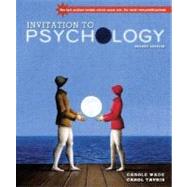
(All chapters end with a Taking Psychology with You section.)
To the Instructor.
To the Student.
About the Authors.
1. What Is Psychology?
I. YOUR SELF.
II. YOUR BODY.
III. YOUR MIND.
IV. YOUR ENVIRONMENT.
V. YOUR MENTAL HEALTH.
VI. YOUR LIFE.
The New copy of this book will include any supplemental materials advertised. Please check the title of the book to determine if it should include any access cards, study guides, lab manuals, CDs, etc.
The Used, Rental and eBook copies of this book are not guaranteed to include any supplemental materials. Typically, only the book itself is included. This is true even if the title states it includes any access cards, study guides, lab manuals, CDs, etc.